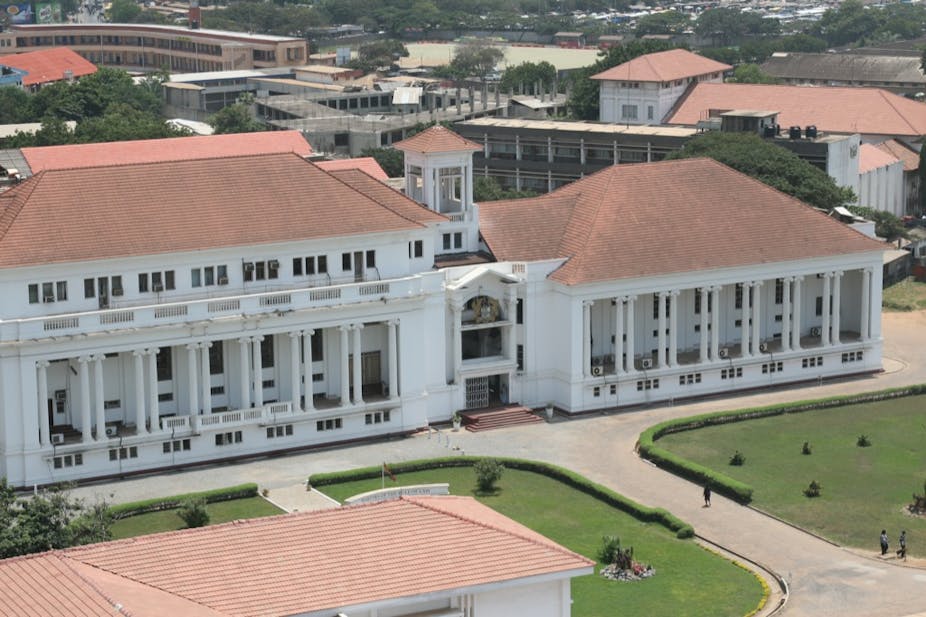The Supreme Court of Ghana has upheld President Akufo-Addo’s victory in the December 7, 2020 polls. This followed a challenge from former president, John Mahama. The court ruled that there was no reason to order a re-run of the poll. Akufo-Addo can now focus on his second term agenda.
This is the second petition of its kind in Ghana over the past eight years. By every indication, we can expect to see more – in Ghana and in other African countries. The trend is already set in Ghana: the results of the elections in 2020 and 2021 were fiercely contested by the losing party. Most of the polls were also marred with violence.
The most recent poll in Ghana was relatively peaceful. But the post-election political environment was rife with tension. The opposition rejected the results and called on supporters to take to the streets to stop the electoral commission from “stealing the election”.
Electoral disputes and petitions are becoming a prominent feature of the electoral process. Many of these disputes and petitions are reflective of widespread electoral irregularities on the continent. While they may threaten the peace of a nation, they enhance the culture of democracy and expose an underlying cry for inclusive governance.
A natural extension of the electoral process
Post-election crises are not new to Ghana. Elections in which the opposition fails to unseat the incumbent are almost always marred with accusations of fraud and vote-rigging. For example, the 2012 election in which Akufo-Addo failed to unseat then President Mahama was heavily disputed. In that election, opposition protests led to a series of violent incidents.
During the weeks following the election, Akufo-Addo filed what at the time what was the largest legal petition with the Supreme Court. The court was deluged with about half a million documents from over 11,000 polling stations to prove double voting, vote padding, and other forms of illegal voting.
In the end, it dismissed the petition but ordered reforms to the electoral process
Mahama’s petition to overturn the 2020 election made similar allegations of double voting, vote padding, and other forms of illegal voting.
In addition to his petition, 16 legal proceedings were initiated by parliamentary candidates from the New Patriotic Party and the National Democratic Congress.
Winner-take-all systems
Ghana has a majoritarian presidential system. The first candidate to pass the 50% plus one threshold assumes all the power that comes with the position. This winner-take-all system makes losing elections extremely costly.
Political candidates spend millions of dollars on campaigns. It, therefore, becomes difficult to accept the results when they and their supporters are suddenly informed that they have lost the election and, for that matter, will have no part in the governance of the country.
Electoral petitions are therefore seen as the final tool in the do-all-you-can playbook for power.
The high cost of losing elections in winner-take-all democracies also incentivises incumbents to attempt to maintain power at all costs, even if that means bribing electoral institutions or using the state apparatus such as the military to suppress the will of the people. These acts themselves make electoral petitions inevitable as the propensity for the opposition to reject results under such conditions rises.
Research has also shown that losing parties in democratic regimes often have an incentive to reject electoral outcomes. While losing parties in autocratic regimes reasonably reject results to publicise fraud, losing parties in democratic regimes may do so for different reasons.
They often use the opportunity to challenge electoral results to create clout over the freeness and fairness of elections. This clout then serves as leverage for the losing party in negotiating favourable reforms with the government.
Presidential petitions also represent an important investment in a country’s democratic culture.
A presidential petition involves all three arms of government – the executive, the legislature, and the judiciary. As the petition plays out, citizens are provided a rare opportunity to learn the legal and political operations of their electoral system and other national institutions. As citizens learn more about how elections are conducted and administered, and how elections may be stolen, they become more vigilant and may help reverse such acts in the future.
Elections in Africa are evolving from apparent manipulation to sophisticated (mis)administration. Administrative attempts to rig an election are more likely to be caught by voters who participate in the process than international observes patrolling polling stations.
In conclusion, electoral disputes and petitions are good for growing democracies. They represent useful opportunities for opposition groups to participate in governance. They also activate national institutions for valuable reforms and affirm citizens’ trust and confidence in the electoral process.

